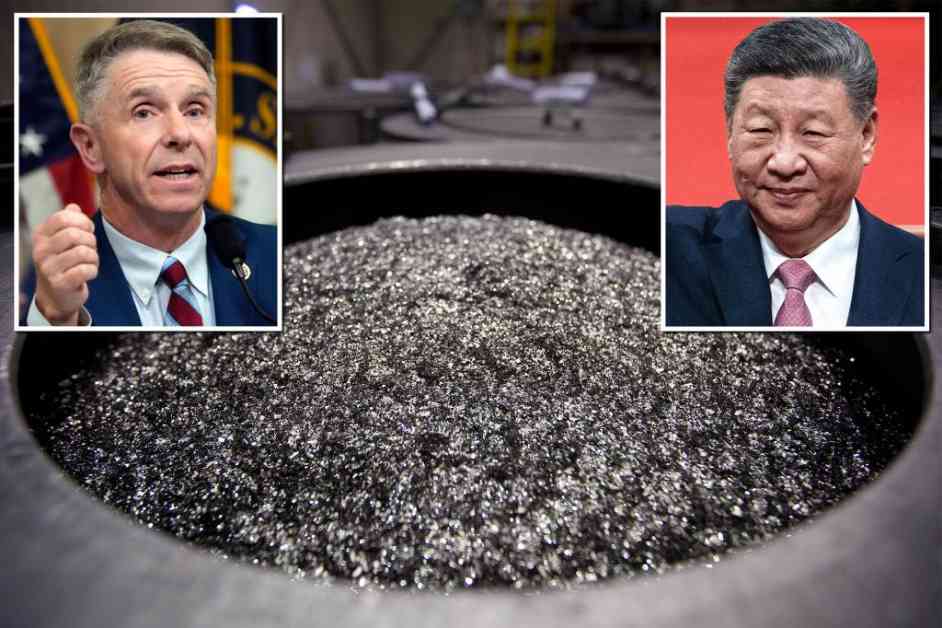China’s Dominance in Critical Minerals Threatens US National Security
China has established a firm grip on the global supply of critical minerals, a situation that poses a significant risk to US national security, according to experts. The US government must take decisive action to address this issue to avoid potential consequences.
Control over rare earth metals, essential for manufacturing products ranging from smartphones to military equipment, has become a contentious point in the trade relationship between the US and China. The Asian nation mines up to 70% of the world’s critical minerals and holds roughly 90% of the processing capacity. This dominance, coupled with unfair trade practices, leaves the US vulnerable to supply disruptions and price manipulation.
### China’s Stranglehold on Critical Minerals
China’s extensive control over the processing capacity of critical minerals raises concerns about the US reliance on the Asian nation. Pini Althaus, CEO of USA Rare Earth, expressed dismay at the current situation, highlighting the precarious position of the US defense industry due to dependence on China.
### Implications for US National Security
In the event of deteriorating diplomatic relations or a conflict between the US and China, experts fear that China could cut off the supply of critical minerals, leading to severe repercussions for industries such as automotive, technology, and defense in the US. The potential for China to weaponize its control over critical minerals poses a significant threat to US interests.
### Legislative Efforts and Solutions
To address the challenges posed by China’s dominance, Rep. Rob Wittman introduced a series of bills aimed at strengthening the US supply of critical minerals. These legislative efforts focus on enhancing collaboration with friendly nations, imposing export controls, and establishing a reserve to protect US producers from price manipulation by China.
### Path Forward for the US
To reduce reliance on China, experts recommend ramping up partnerships with countries like Canada and Australia, known for their resource-rich deposits. By investing in early-stage exploration and local processing capabilities, the US can diversify its critical mineral supply chain and reduce vulnerability to external disruptions.
In conclusion, the US must take proactive steps to secure its critical mineral supply chain and safeguard national security interests against China’s monopolistic control. By fostering international partnerships and implementing strategic legislation, the US can mitigate the risks posed by China’s dominance in critical minerals and ensure a resilient supply chain for the future.












